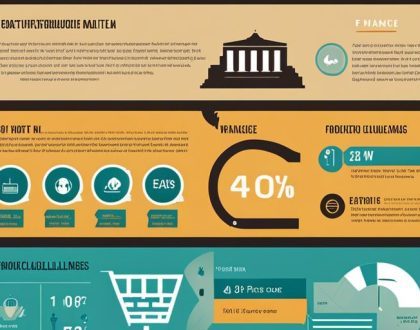The ABCs of Accounting in Malta

Overlooking the importance of proper accounting practices in Malta can have costly consequences for businesses of all sizes. Understanding the basics of accounting is crucial for ensuring financial stability and compliance with Maltese regulations. From balancing sheets to tax filings, navigating the world of accounting can be daunting, but with a solid grasp of the fundamentals, businesses can thrive in Malta’s dynamic economy. This blog post aims to break down the important principles of accounting in Malta, providing a comprehensive guide for both established companies and startups looking to succeed in this Mediterranean business hub.
The Accountancy Profession in Malta
Qualifications and Regulatory Bodies
For those looking to pursue a career in accounting in Malta, obtaining the necessary qualifications is crucial. The Malta Accountancy Board plays a vital role in regulating the accountancy profession on the island. They oversee the licensing and registration of accountants, ensuring that they meet the required standards and ethical guidelines.
Ethical Considerations for Maltese Accountants
For Maltese accountants, ethical considerations are of utmost importance. Adhering to ethical standards ensures trust, integrity, and professionalism in the industry. Accountants must follow the Code of Ethics set by the Accountancy Board, which outlines their responsibilities to clients, colleagues, and the public.
Regulatory bodies closely monitor accountants’ actions to prevent any misconduct that could jeopardize the profession’s reputation. Any breaches of ethics can result in severe consequences, including fines, suspension, or even revocation of their license. It is important for accountants to prioritize ethical behavior to maintain trust and credibility in the accountancy profession in Malta.
Financial Reporting Standards
Adoption of International Financial Reporting Standards (IFRS)
Any company in Malta looking to comply with international standards for financial reporting must adhere to the International Financial Reporting Standards (IFRS). These standards are designed to ensure consistency, transparency, and comparability in financial reporting across the globe.
Specific Requirements for Different Business Structures
To ensure compliance with financial reporting standards in Malta, different business structures are subject to specific requirements. Sole traders, partnerships, private limited companies, and public limited companies all have unique reporting obligations that must be met to maintain regulatory compliance and transparency.
Adoption of specific reporting requirements for different business structures ensures that financial statements accurately reflect the financial position and performance of each entity. Sole traders may have less stringent requirements compared to public limited companies due to the size and complexity of their operations.
Taxation in Malta
Corporate Tax Structure and Incentives
For businesses operating in Malta, the corporate tax structure is notably attractive. The standard corporate tax rate is a flat 35%, but Malta offers various incentives and tax refunds that can significantly lower the effective tax rate, making it one of the lowest in the European Union. Companies incorporated in Malta benefit from no withholding taxes on dividends, and there are opportunities for tax credits, refunds, and exemptions.
VAT and Other Tax Considerations for Businesses
An necessary aspect for businesses to consider in Malta is the Value Added Tax (VAT) system. The standard rate of VAT is 18%, with reduced rates applicable to certain goods and services. Additionally, businesses need to be mindful of other taxes such as stamp duty, social security contributions, and environmental taxes. It is crucial for businesses to understand the VAT regulations and compliance requirements to avoid penalties or interest charges.
This chapter provides an overview of the tax landscape in Malta for businesses, highlighting the corporate tax incentives and VAT considerations. Understanding these facets is necessary for companies looking to establish a presence in Malta or expand their operations within the country. By navigating the tax system effectively, businesses can maximize their profits and ensure compliance with Maltese tax laws.
Auditing and Compliance
The Role of Auditors in Malta
Not only do auditors in Malta play a vital role in ensuring the accuracy of financial statements, but they also help businesses uphold transparency and accountability. Auditors are responsible for examining financial records and reporting any discrepancies or irregularities they may find, providing assurance to stakeholders and investors.
Compliance with Local and European Union Regulations
Local businesses in Malta must adhere to a myriad of regulations set forth by both local authorities and the European Union. Compliance with these regulations is crucial to avoid fines, penalties, and legal consequences. It is the responsibility of businesses to stay informed and updated on the latest requirements to ensure that they operate within the law.
Adhering to local and EU regulations also helps businesses build trust with customers, investors, and other stakeholders. By demonstrating a commitment to compliance, companies can enhance their reputation and credibility in the market, paving the way for long-term success and sustainability.
Accounting Software and Technology
Popular Accounting Software Used in Malta
Now, let’s explore into accounting software and technology in Malta. With the advancement of technology, several accounting software options have gained popularity among businesses in Malta. Some of the most commonly used accounting software in the Maltese market include Sage, QuickBooks, and Xero. These software solutions offer a range of features to streamline accounting processes, such as bookkeeping, invoicing, and financial reporting.
The Impact of Technology on Maltese Accounting Practices
Accounting technology has revolutionized the way accounting practices are conducted in Malta. Another key impact of technology on Maltese accounting practices is the increased automation of routine tasks. This automation not only saves time but also reduces the likelihood of human error in financial data management. Additionally, the integration of cloud-based accounting software has made it easier for businesses to access real-time financial information from anywhere, enhancing decision-making processes.
To wrap up
Hence, understanding the ABCs of accounting in Malta is crucial for businesses looking to navigate the financial landscape of the country. From adhering to the tax regulations to maintaining accurate records, having a solid grasp of accounting principles can help businesses thrive in Malta’s competitive market. By following the guidelines outlined in this guide, companies can ensure compliance with local laws and make informed financial decisions to drive success in this unique business environment.
FAQs:
What role does the Malta Accountancy Board play in regulating the accounting profession?
The Malta Accountancy Board oversees licensing and registration, ensuring accountants meet required standards and ethical guidelines.
What are the consequences of breaching ethical standards for Maltese accountants?
Breaches of ethics can lead to severe consequences like fines, suspension, or license revocation, impacting trust and credibility.
What are the specific reporting requirements for different business structures in Malta?
Sole traders, partnerships, private, and public limited companies have unique reporting obligations tailored to their size and complexity.
What incentives does Malta offer regarding corporate taxation?
Malta provides various incentives and tax refunds, resulting in an effectively low corporate tax rate and benefits like no withholding taxes on dividends.
Which accounting software options are popular among businesses in Malta?
Sage, QuickBooks, and Xero are commonly used accounting software in Malta, offering features like bookkeeping and financial reporting.
Recommended Posts

Historical Tapestry of Malta
July 5, 2024

Starting a Finance Business in Malta
July 5, 2024

Malta’s Economic Strategy for Business
July 5, 2024




